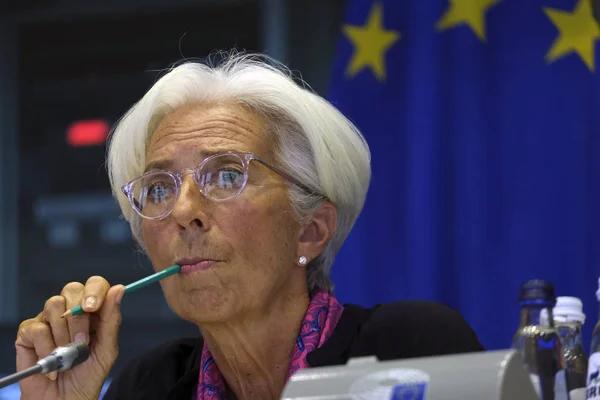The Governing Council of the European Central Bank (ECB) at its meeting on Thursday, January 25, kept interest rates unchanged. The base interest rate remained at 4.5%, the marginal lending rate at 4.75% and the deposit rate at 4%.

► Read the Ministry of Finance page on Facebook: main financial news
ECB decision on rate
The ECB's decision to leave interest rates at current levels is in line with economists' forecasts. According to a Reuters poll, all 85 participating economists expected the ECB deposit rate to remain unchanged after the ECB meeting on January 25, remaining at a record level of 4%.
The European regulator still intends to return inflation to the medium-term target of 2%, the press release said. According to Eurostat, annual inflation in the eurozone accelerated from 2.4% in November to 2.9% in December, breaking the downward trend of the past six months. This has raised questions about the timing of the ECB's interest rate cut.
According to a Reuters poll, most economists (59 out of 85) expect the ECB to cut rates in the second quarter.
More than 70% of participants in the latest survey expect rates to be cut before July, up from about 57% in December. In November, 55% of those surveyed did not expect policy easing until the second half of the year, Reuters reports. According to the latest survey, 38 out of 85 economists believe the ECB's first rate cut will happen in June, 21 expect it in April, and 23 predict it will happen in the third quarter or later.
Read: The public debt of the eurozone fell to 89.9% of GDP, the European Union – to 82.6% of GDP
The ECB believes that key interest rates are at levels that will help achieve the inflation target . The regulator intends to keep rates at a restrictive level for as long as necessary.
Market expectations
Financial markets currently expect interest rates to be cut by 127 basis points this year, in five steps, with the first in April or June, Reuters writes. That's below expectations two weeks ago, when a 150 basis point decline was forecast starting in March or April.
Former Bank of England economist Catherine Nyss said the ECB is inclined to be cautious when it comes to rate cuts. After criticism for underestimating inflation growth in recent years, the bank prefers to play it safe twice. “Simply put, to avoid repeating mistakes, policymakers will want to make sure the inflation genie is safely sealed in the bottle,” she says, adding that the second quarter may be “premature for rate cuts.”
Read: Eurozone inflation accelerated in December for the first time since April
Goldman Sachs assumed in December that the ECB would begin cutting interest rates by 25 basis points from April 2024.
Economists at Deutsche Bank forecast a decline in headline and core inflation to 2% by the middle of this year – a year or earlier than the European Central Bank expects, Reuters reports. This fall in inflation will lead to a rise in real interest rates, which will actually tighten economic policy in a recession.
According to experts from Deutsche Bank, this increases the risk of a full-fledged economic recession and a serious blow to the labor market.

